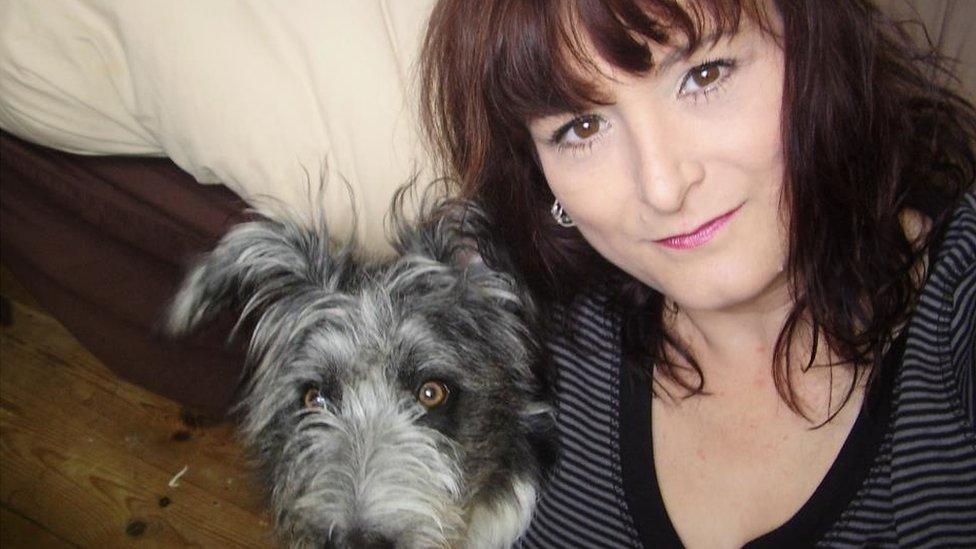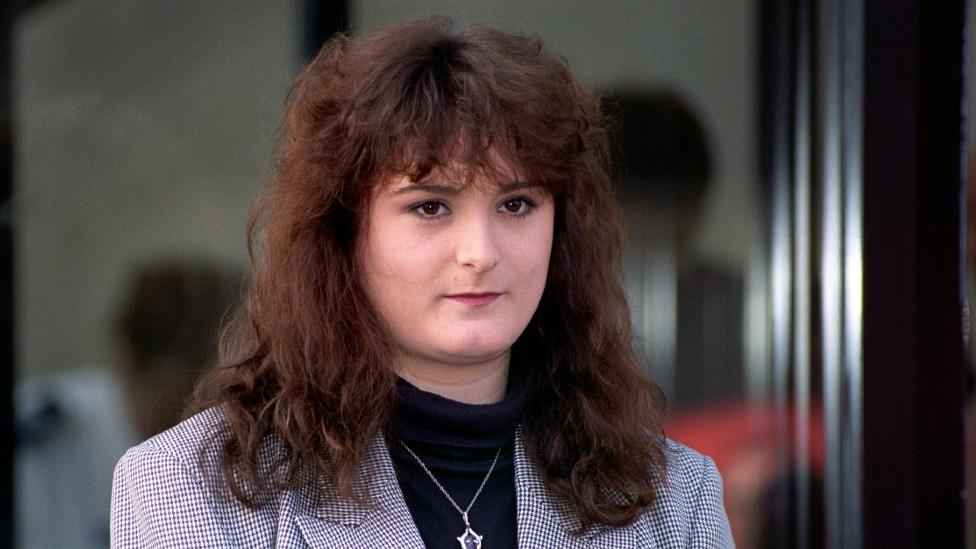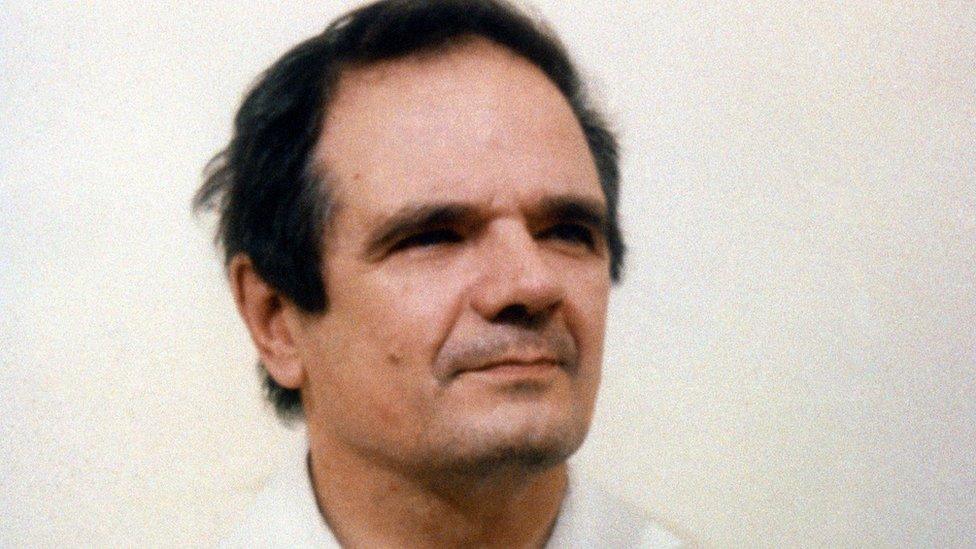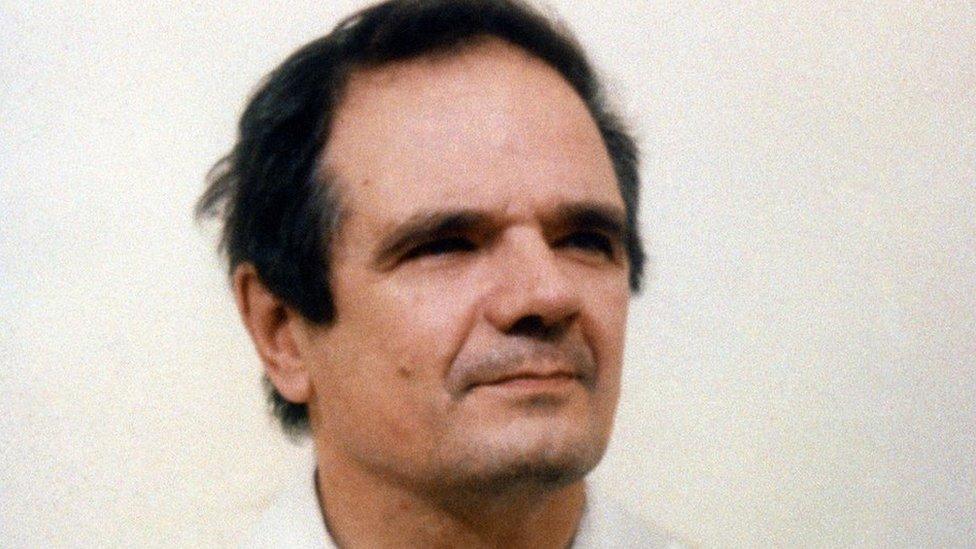Stephanie Slater: Kidnap victim 'suffered PTSD' after ordeal
- Published

Stephanie Slater was diagnosed with PTSD before her death, her friend said
A woman who was kidnapped and held in a wooden "coffin" for eight days spent years living with post-traumatic stress disorder (PTSD), a friend has said.
Stephanie Slater, an estate agent, was kidnapped and held captive in 1992, but died of cancer aged 50 in 2017.
Ms Slater was held in a wooden box inside a bin after she was abducted by Michael Sams, from Nottinghamshire.
A friend said she had never recovered from the ordeal and "became a kind of hermit".
The revelation has been made in series two of the BBC podcast The Kidnapping of Stephanie Slater which is available on BBC Sounds.
Sams - who also murdered Leeds teenager Julie Dart - was told in April he would remain in prison after unsuccessfully making a bid for freedom at a parole hearing.
Ms Slater's best friend Stacey Kettner said: "Before the end of her life, Stephanie was diagnosed with PTSD and was in receipt of sickness benefits for it."
In the years prior to that, however, Ms Kettner said her friend had struggled.

Stephanie Slater was always determined to talk about the case to highlight dangers to women
She never had a long-term relationship in the years following her kidnapping.
"She never felt clean and she used to shower multiple times a day," Ms Kettner said.
"She would scrub herself until she was red raw. She would change her clothes multiple times a day.
"Observing this and seeing how this girl who had been this wonderful, vivacious person, to see she was broken was so difficult.
"Ultimately she never recovered. She kind of became a hermit.
"She didn't want to go anywhere or see anybody."
In an interview she gave with the BBC prior to her death, Ms Slater said she had even struggled to use a wheelie bin.

Sams kidnapped Stephanie and kept her in a wheelie bin
"I wouldn't have one in the house [at first] because that's what Sams kept me in," she said.
"The horror never goes away.
"I've rebuilt my life to a certain extent but there are still bits of me that I've lost.
"You go on Facebook and you look at your friends and you see they have moved on, had children.
"I'm still here, I'm still on my own, I'm still single. You do feel quite cheated."
Stephen Regel, a trauma therapist who has worked with survivors of trauma both in the NHS and with Victim Support Homicide Service said that while Stephanie had told her story over and over in interviews and in presentations she did with the police, she had probably not come to terms with it.

Stacey Kettner, Stephanie's friend, said she never came to terms with what had happened
"People get used to telling their stories and it's a third person narrative," he said.
"They're not really processing what happened.
"I guess when she's telling her story over and over again, there's an element of detachment.
"If she were here now, I would say that if you were to sit down with her, she would probably meet a diagnosis of PTSD."

Follow BBC East Midlands on Facebook, external, on Twitter, external, or on Instagram, external. Send your story ideas to eastmidsnews@bbc.co.uk, external.
Related topics
- Published3 April 2023

- Published4 December 2022

- Published1 September 2017
